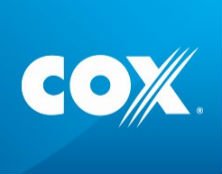 After inflicting more than a decade of misery on alleged file-sharers, rightsholders and their online tracking partners are continuing their quest to turn piracy into profit.
After inflicting more than a decade of misery on alleged file-sharers, rightsholders and their online tracking partners are continuing their quest to turn piracy into profit.
Letters continue to land in mailboxes all over the world, informing people they are pirates and that a lawsuit will follow if a cash settlement isn’t paid. Thousands of people are intimidated by these threats and choose to pay hundreds to thousands of dollars to make the problem disappear. Others fight back and when they do, interesting things can happen.
James Collins is one of the countless individuals targeted by the trolls behind the movie London Has Fallen (LHF Productions). Like in many similar cases, LHF accuse Collins of downloading and sharing their movie illegally using BitTorrent. Collins is adamant that he did neither.
In a letter obtained by the troll watchers over at DieTrollDie, Collins’ lawyer J. Christopher Lynch informs LHF lawyer David A. Lowe of this stance in no uncertain terms.
“As Mr. Collins told you in his letter dated October 6, 2016, he is innocent. Mr. Collins was asleep on the date at the time the Amended Complaint accuses him of being ‘observed infringing’,” Lynch writes.
“Likewise, Mr. Collins has no secondary liability because he never aided, directed, facilitated, benefitted from, or shared in the proceeds of any violations of the law by anyone.”
Of course, defenses similar to this one are extremely commonplace. Defendants often deny all knowledge of the alleged infringement but are left trying to prove a negative. The trolls, on the other hand, point to the supposed “forensic quality” evidence that they’ve compiled, that will be produced at trial, should a settlement not be forthcoming.
However, many trolls are like vampires. Not only do they go straight for the throat, they’re also terrified that the cold light of day will be shone directly on their operations and their sometimes shadowy overseas partners. This point isn’t lost on Lynch in his defense of Mr Collins.
In his letter, Lynch calls on LHF’s lawyer to voluntarily dismiss the case against his client, within five business days. Should that go ahead, Lynch says he will seek no fees or costs, but his confident tone suggests a joker up his sleeve.
“We are optimistic that your client and its foreign representatives will see the wisdom of dismissing Mr. Collins. We recognize this requires ‘taking our word’ that Mr. Collins is wholly innocent, but, believe me, he is, just like he told you he is,” he writes.
“We know your client’s foreign representatives do not like taking someone’s word, but this is a good case to trust Mr. Collins, who is wholly innocent, or me, a member of the bar, who is telling you he is wholly innocent. Going forward is tantamount to saying Mr. Collins and I are lying to you, which, of course, we are not, since Mr. Collins is wholly innocent.”
So who are the “foreign representatives” and why are they so important? Well, they’re the ones doing the IP address tracking, monitoring the infringements and compiling the evidence. Well known in trolling circles, notorious companies such as Guardaley, MaverickEye and Crystal Bay Corporation are all in the mix.
The location of these outfits raises issues. Lynch points out that in an earlier case it was discovered that the foreign companies had no properly licensed investigating U.S. witnesses, even though they were “engaged in the business of detecting, discovering, or revealing . . . evidence to be used before a court.” In his letter, Lynch says that he doubts that anyone involved in this case is properly licensed either.
“Your client’s foreign representatives could have complied with Washington law by hiring a licensed investigator to corroborate the foreign investigation in real time, since the purported location of the entrapped IP addresses is known,” he writes.
“But your client’s representatives chose not to invest in compliance with Washington law, and are taking a chance that somehow the foreign witness to the ‘observed infringing’ can testify, and that somehow the entrapped ‘blip’ of the movie in question will be sufficient evidence of U.S. copyright infringement.”
The ‘blip’ referenced by Lynch refers to a momentary transfer of a small part of the movie in question. In an earlier case, the foreign investigators were unable to identify which portion of the copyright work this ‘blip’ related to, something which led to a judgment in favor of the defendant.
What follows next is an impressive teardown of the foreign investigators, including apparently fictitious witnesses and people operating under dual identities, one of whom (Darren M. Griffen) appears in more than 600 other federal cases against file-sharers. Lynch’s investigation suggests an organized smoke-and-mirrors operation, one that if necessary he’ll expose before the court.
“The bottom line is that Mr. Collins is wholly innocent. My firm would not have taken his case if he were not innocent. Mr. Collins will prevail if your client chooses to go forward, and Mr. Collins will seek defense attorneys’ fees for the litigation expenses that could have been avoided by believing him,” Lynch writes.
“Or, choose not to believe him (and me) and we will return the favor – adopting the
posture that your client’s representatives are also liars. We will seek the truth about ‘Darren M. Griffin’ and his 42 declarations to the [Western District of Washington] and 600 more to federal courts across the country.”
As noted by DieTrollDie, that threat proved too much for LHF Productions. The company dismissed the case against Mr Collins in preference to being put under the microscope. There are probably very good reasons for that and ones that other recipients of threatening letters should consider exploring.
The whole letter can be found here (pdf). It’s a particularly entertaining read and contains valuable lessons on how not to be intimidated by trolls.
Source: TF, for the latest info on copyright, file-sharing, torrent sites and ANONYMOUS VPN services.

 Dutch anti-piracy outfit BREIN has been very active over the past months, targeting uploaders on various sharing sites and services.
Dutch anti-piracy outfit BREIN has been very active over the past months, targeting uploaders on various sharing sites and services. Last December a Virginia federal jury ruled that Internet provider Cox Communications was responsible for the copyright infringements of its subscribers.
Last December a Virginia federal jury ruled that Internet provider Cox Communications was responsible for the copyright infringements of its subscribers. Outside of law enforcement, it’s fair to say that the Federation Against Copyright Theft (FACT) is the most feared anti-piracy outfit operating in the UK today.
Outside of law enforcement, it’s fair to say that the Federation Against Copyright Theft (FACT) is the most feared anti-piracy outfit operating in the UK today.
 With millions of daily visitors ExtraTorrent is the second largest torrent site, trailing only behind The Pirate Bay.
With millions of daily visitors ExtraTorrent is the second largest torrent site, trailing only behind The Pirate Bay.